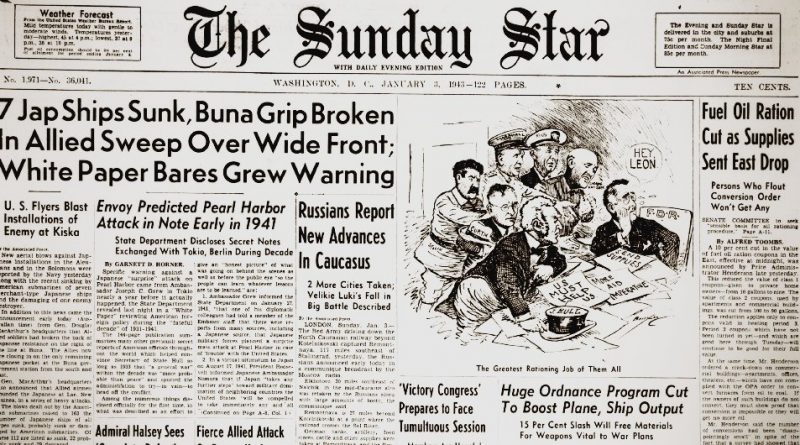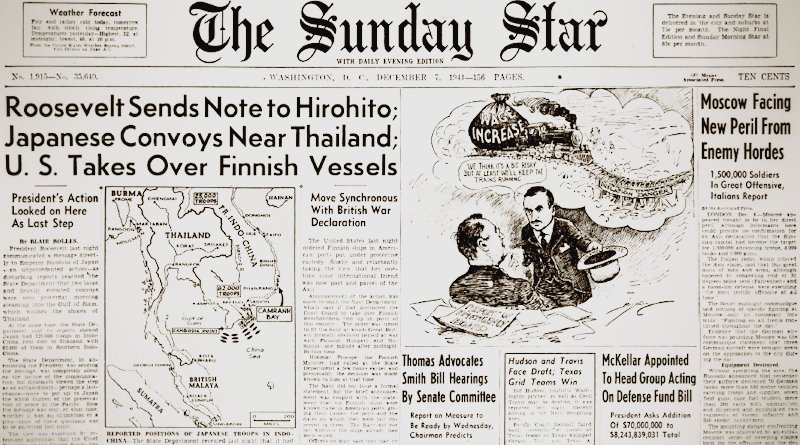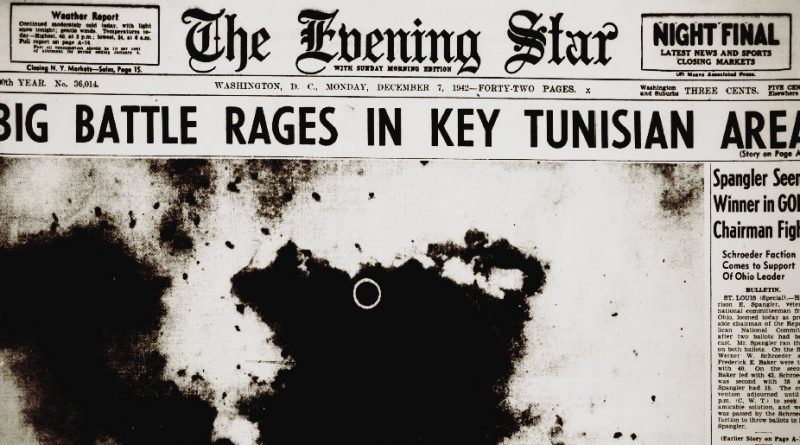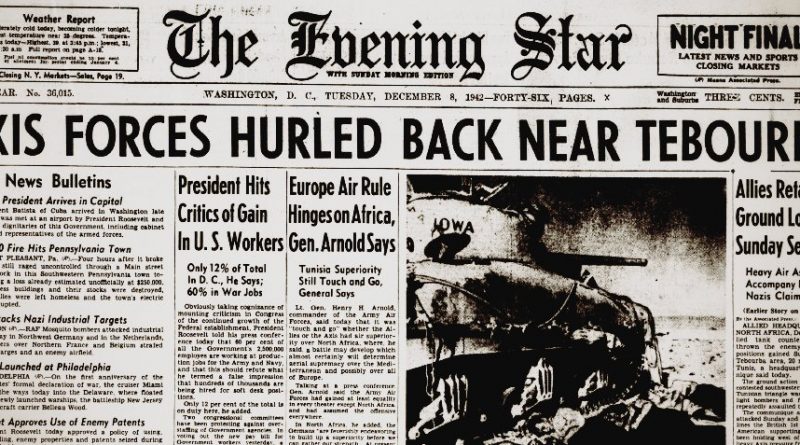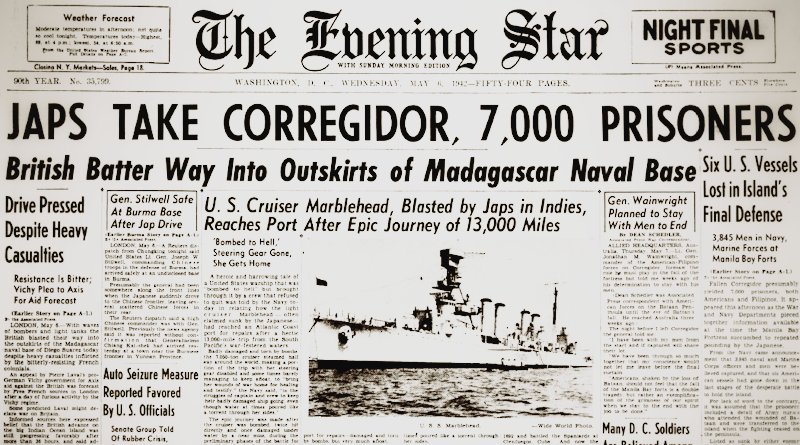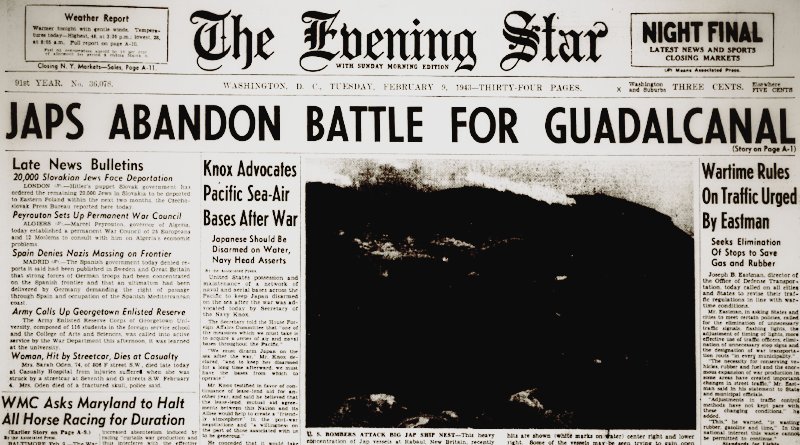World War II Chronicle: January 3, 1943
Click here for TODAY’S NEWSPAPER
Admiral Halsey declares on the front page that the Axis will be defeated this year. But former United States Ambassador to Japan Joseph Grew thinks that Japan won’t fall so easily. Having served as ambassador for ten years, Grew knew the Japanese people quite well. He said this in last month’s LIFE magazine:
The Japanese will not crack. They will not crack morally or psychologically or economically, even when eventual defeat stares them in the face. They will pull in their belts another notch, reduce their rations from a bowl to a half bowl of rice, and fight to the bitter end. Only by utter physical destruction or utter exhaustion of their men and materials can they be defeated.
According to the paper he also notified Washington that he heard that the Japanese may be considering a surprise attack on Pearl Harbor if the United States stands in their way. Incidentally, Grew and Franklin Roosevelt were schoolmates at Groton (Grew was two classes ahead). Other Old Grotonians that we have mentioned in the Chronicle: the sons of both Roosevelt presidents, All-American Harvard tackle — and future Governor of Massachusetts — Endicott Peabody, and Medal of Honor recipient Maj. Pierpont Morgan Hamilton. Fred Gwynne, who becomes a radioman on a submarine chaser during World War II before becoming Herman Munster on the sitcom The Munsters, also attended Groton.
On page three: 19 British seamen spent 11 days adrift after their merchant ship was torpedoed by a U-boat. They were picked up by another British vessel, which was sunk 24 hours later. They spent another six days before being rescued… George Fielding Eliot column on page four… Former Olympic runner, now an Army Air Force bombadier, Louis Zamperini is pictured on page 11. He is currently operating in the South Pacific…
War’s 174th week summarized on page 26… Sports section begins on page 32. On the next page, the Cubs are inviting a 36-year-old pitcher named Dick Barrett to try out this year. Minor League Baseball’s Most Valuable Player in 1942 last pitched for the big leagues in 1934, and will accumulate 300 wins over his 24-year minor league career…
Former Army football player Clovis E. Byers is the third general to be wounded on the front in Buna (see page 34). At the end of November when fierce Japanese resistance slowed the Buna campaign, Gen. Douglas MacArthur had this to say to I Corps commander Maj. Gen. Robert L. Eichelberger:
I’m putting you in command at Buna […] and I want you to remove all officers who won’t fight. Relieve regimental and battalion commanders; if necessary, put sergeants in charge of battalions and corporals in charge of companies — anyone who will fight. […] I want you to take Buna, or not come back alive. And that goes for your chief of staff, too.
Byers (Eichelberger’s chief of staff) moved up to lead the 32nd Infantry Division after Brig. Gen. Albert W. Waldron was wounded. Byers will command X Corps during the Korean War, and back when Byers was playing ball, MacArthur was the U.S. Military Academy’s Superintendent. He commands X Corps during the Korean War… Grantland Rice column on page 35… “District Fighting Men” on page 60.
Evening star. (Washington, D.C.), 3 January 1943. Chronicling America: Historic American Newspapers. Lib. of Congress.
https://chroniclingamerica.loc.gov/lccn/sn83045462/1943-01-03/ed-1/
